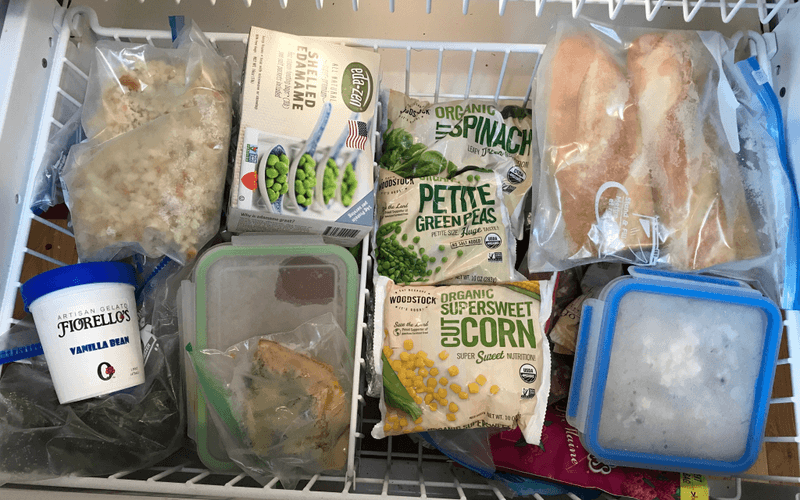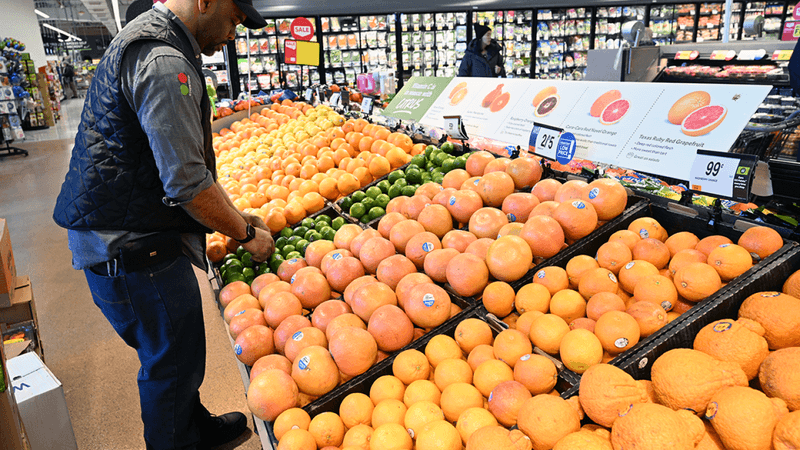Boomers and Gen Z may stroll the same supermarket aisles, but their approach to grocery shopping reveals a fascinating generational divide. For many boomers, grocery shopping is a tactile, routine-driven ritual—built on decades of experience, preference for in-person interaction, and a strong sense of value and practicality. Their methods reflect a time when meal planning was handwritten, coupons were clipped from newspapers, and brand loyalty was earned over Sunday family dinners. These habits may seem old-fashioned to younger shoppers, but they often stem from a deeper appreciation for quality, budgeting, and self-reliance.
On the other hand, Gen Z—shaped by digital convenience and fast-paced lifestyles—often favors app-based delivery services, minimalist ingredients lists, and food choices aligned with values like sustainability and wellness. To them, many of the practices boomers swear by might feel unnecessary, overly meticulous, or even a bit quirky. Yet, hidden within these habits is a wealth of practical wisdom that speaks to frugality, resourcefulness, and intentional living. In this look at 15 boomer-approved grocery practices, we explore the traditions that once ruled the shopping cart and still hold relevance today—if only we take a moment to appreciate the stories and smarts behind them.
1. Making Grocery Lists
Crafting a grocery list is almost an art form for boomers. They meticulously jot down every item to ensure nothing is forgotten. This habit reflects their desire for preparedness and efficiency. Writing a list by hand can be a calming ritual, connecting them to a simpler time.
For boomers, lists are more than just paper; they’re a strategy to navigate the aisles without succumbing to distractions. Unlike the digital apps favored by younger generations, a paper list in hand is tactile and satisfying, providing a sense of accomplishment when each item gets ticked off.
2. Sticking With Their Lists
Once the list is made, boomers are unwavering in their commitment to it. They resist the temptation to stray from what’s written, showcasing their discipline and focus. This adherence to the list ensures that budgets are kept and waste is minimized.
While younger shoppers might impulsively add trendy snacks, boomers maintain a sharp focus on necessity. The satisfaction of completing a list without deviations is akin to achieving a personal goal. The list acts as a guiding beacon, providing consistency in a world full of choices.
3. Buying In Bulk The Smart Way
Boomers know the value of buying in bulk, but they do it with a discerning eye. It’s not just about stocking up; it’s about understanding what’s truly needed. Bulk buying is approached with wisdom, ensuring that only non-perishable or frequently used items are purchased.
This strategic approach minimizes waste and maximizes savings. The younger generation might see it as over-preparation, but for boomers, it’s a practical measure born from experience. This habit reflects their mindful consumption and desire for economic efficiency.
4. Quality Over Quantity
Boomers value quality, often choosing it over sheer quantity. They are likely to spend more on a high-quality item than settle for bulk of lesser quality. This is evident when they select fresh produce or high-grade meats, ensuring every purchase is worth its price.
This mindset stems from an appreciation for well-made products that last longer and offer better experiences. For boomers, the focus is on long-term satisfaction rather than immediate abundance. Such thoughtful choices reflect a deep understanding of value, beyond mere price tags.
5. Reading The Labels
Deciphering food labels is a skill boomers have honed over years. They meticulously read nutritional information, aiming to make informed choices about their health and diet. This practice highlights their conscientious approach to wellness, prioritizing knowledge over convenience.
Where quick scans suffice for Gen Z, boomers delve into details, ensuring that the contents align with their dietary needs. By understanding ingredients and nutritional value, they actively manage their health. This habit embodies a lifetime commitment to well-being.
6. Clipping Coupons
Clipping coupons might seem archaic, but it’s a revered tradition among boomers. They diligently search for deals, clipping and organizing coupons to save money. This practice ties into their thrifty nature and love for finding bargains.
For boomers, couponing is not just about savings; it’s a hobby, a skill, and a point of pride. While digital deals are more popular today, the tactile satisfaction of handling paper coupons and witnessing the savings at the checkout remains unmatched. It’s a testament to resourcefulness and financial savvy.
7. Knowing When To Choose Store Brands
Boomers have a knack for identifying when store brands offer equal quality to name brands. They know which items can be bought affordably without sacrificing quality. This wisdom comes from years of experience and trials.
Choosing store brands wisely reflects their practicality and budget-conscious mentality. It’s not about brand loyalty but about value and quality. Boomers have mastered the art of discerning when a generic product meets their standards, ensuring they get the most bang for their buck.
8. Shopping The Sales
Scouting out sales is a thrill for many boomers. They have a keen eye for discounts and know how to strategically plan shopping trips around these opportunities. This savvy shopping method ensures that they maximize savings while still acquiring quality goods.
Boomers often view sale hunting as a strategic game, combining timing with insight. While younger generations may prefer convenience over savings, boomers relish the pursuit of a good deal. It reflects their resourcefulness and economic wit.
9. Cooking From Scratch
Cooking meals from scratch is a cherished skill among boomers. It’s not just about food; it’s about crafting meals with love and tradition. This practice connects them to memories of family meals and the joy of creating something wholesome.
For boomers, the process is as satisfying as the result. Younger generations might opt for quick meals, missing the joy of homemade flavors. Cooking from scratch is not just culinary but cultural, preserving family recipes and passing down heritage.
10. Meal Prepping
Meal prepping is a strategic approach boomers use to save time and stay organized. By preparing meals in advance, they ensure a balanced diet throughout the week without the stress of daily cooking. This method is rooted in efficiency and foresight.
Boomers appreciate the simplicity it brings to life, allowing them to enjoy nutritious meals with minimal effort. While Gen Z might lean on food delivery services, boomers find satisfaction in knowing they have meals ready to go. It’s a testament to their planning prowess.
11. Knowing Most Things Can Be Frozen
The freezer is a boomer’s best friend, offering an extension of shelf life and minimizing waste. They understand that many foods can be frozen, preserving their quality and extending usability. This knowledge transforms leftovers into future meals.
Boomers excel at utilizing freezer space efficiently, ensuring nothing goes to waste. Younger generations might overlook this resource, but boomers embrace it as a practical tool. It’s a skill that emphasizes conservation and thoughtful planning.
12. Using Reusable Bags
Long before it was trendy, boomers were bringing their own bags to the store. Using reusable bags reflects their commitment to environmental conservation and frugality. This habit reduces plastic waste and encourages a more sustainable lifestyle.
For boomers, reusable bags are more than a trend; they’re a practical and responsible choice. While the younger crowd might follow trends, boomers have been quietly championing eco-friendly practices for decades. This reflects their steady commitment to preserving the planet.
13. Shopping Around
Boomers are not afraid to shop around, comparing prices and quality at various stores. This practice is a testament to their diligence and patience, ensuring they get the best deal possible. By not settling for the first offer, they maximize their purchasing power.
This habit reflects their strategic approach to shopping, treating it as an exploration rather than a chore. Younger generations can learn from this dedication to finding value. It showcases the importance of being informed and resourceful.
14. Not Using Credit Cards
Preferring cash over credit, boomers often avoid using credit cards for grocery shopping. This choice reflects a preference for direct financial management and avoiding debt. Handling cash ensures they stick to their budget and only spend what they have.
This approach might seem outdated to digital-savvy generations, but it’s a method of controlling finances and avoiding overspending. For boomers, the tangible nature of cash offers a clear view of their spending habits. It’s a disciplined practice rooted in financial prudence.
15. Knowing When To Spend More
Boomers are wise in knowing when it’s worth spending more for premium products. They prioritize quality, especially for items that impact health and well-being, such as organic produce or quality meats. This selective spending is a calculated decision to avoid compromising on essentials.
While some might see it as extravagant, boomers view it as an investment in better living. It demonstrates their ability to discern which products warrant a higher price for the greater benefit they offer. This discerning nature reflects a lifetime of learned wisdom.















Leave a comment